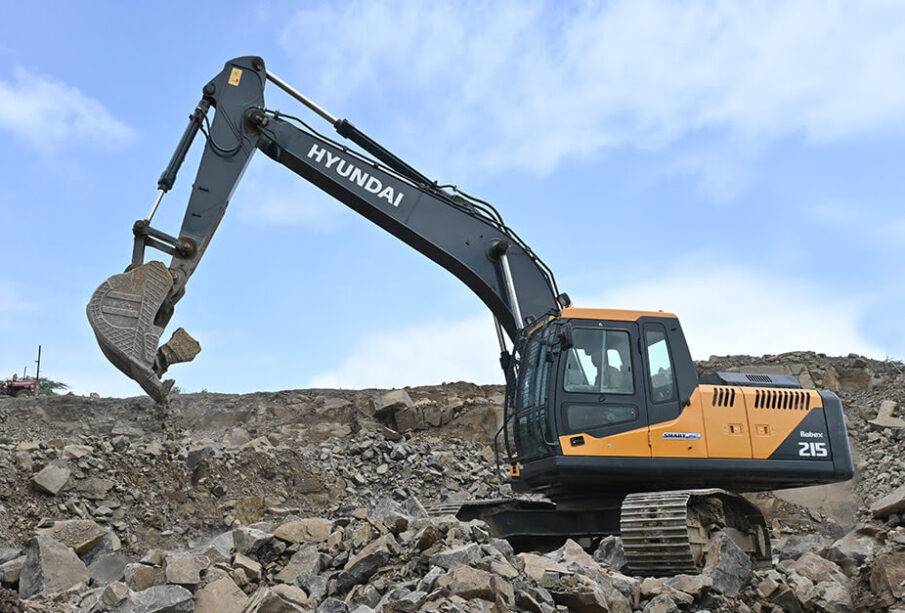Mastering Excavator Selection: Proven Tips For Choosing Wisely

Excavators are essential machines in construction, landscaping, mining, and various other industries where digging, lifting, and moving heavy materials are necessary. Selecting the right excavator for your project is crucial for efficiency, safety, and cost-effectiveness. With a myriad of options available in the market, mastering excavator selection requires careful consideration of various factors. In this comprehensive guide, we will look into proven tips to help you choose the best excavator wisely.
Your Project Requirements
Before diving into the world of excavator selection, it’s essential to have a clear understanding of your project requirements. Analyze the scope of work, the type of materials to be excavated, and the terrain conditions. Consider factors such as depth and width of trenches, lifting capacity, reach, and mobility requirements. Having a clear understanding of the requirements for your project can help you focus your options and come to a more educated decision. When researching excavator options, be sure to explore reputable dealerships that offer a diverse range of models, including Volvo excavators for sale, to ensure you find the perfect machine for your project needs.
Assessing Size And Type
Excavators come in various sizes and types, each designed for specific applications. Mini excavators are compact and maneuverable, making them ideal for small-scale projects and confined spaces. The power and versatility of mid-size excavators are well-balanced, making them appropriate for a variety of jobs. Large excavators are frequently utilized in heavy-duty applications like mining and large-scale construction projects because of their strong digging capabilities.
Considering Operating Environment
The kind of excavator you require depends in large part on the working conditions. Consider factors such as ground conditions, slope gradients, and obstacles present on-site. For example, if you’re working in tight spaces or urban areas with limited access, a compact excavator with zero or reduced tail swing can maneuver more efficiently. In contrast, rough terrains may require excavators with enhanced stability features and tracks designed for uneven surfaces.
Evaluating Performance Features
When selecting an excavator, pay close attention to its performance features to ensure optimal efficiency and productivity. Look for machines with powerful engines that deliver ample horsepower and torque for digging through tough materials. Hydraulic systems with multiple speed settings and precise control mechanisms enable smooth operation and enhanced precision. Consider additional features such as auxiliary hydraulic circuits for attachments, advanced monitoring systems, and ergonomic operator cabins for comfort and safety.
Assessing Attachment Compatibility
Attachments expand the versatility of excavators, allowing them to perform a wide range of tasks beyond traditional digging. Consider whether an excavator will work with different attachments like buckets, hammers, grapples, augers, and thumbs before making a purchase. Ensure that the machine’s hydraulic system can support the required flow and pressure for optimal attachment performance. Investing in a versatile excavator with compatible attachment options can significantly increase your operational capabilities and efficiency.
Comparing Maintenance Requirements
An essential part of owning and using an excavator is maintenance. Before making a purchase, compare the maintenance requirements of different excavator models. Consider factors such as service intervals, accessibility of key components for routine inspections and repairs, and the availability of spare parts. Opt for excavators from reputable manufacturers known for their durability, reliability, and comprehensive aftermarket support. Additionally, inquire about warranty coverage and extended service plans to mitigate potential risks and unexpected expenses.
Assessing Fuel Efficiency And Operating Costs
Fuel efficiency is a significant consideration, especially for long-term projects where operating costs can impact profitability. Look for excavators equipped with advanced engine technologies, such as Tier 4-compliant diesel engines with low emissions and improved fuel economy. Consider features such as automatic engine idle shutdown, eco modes, and regenerative hydraulic systems that optimize fuel consumption without compromising performance. To ascertain the entire cost of ownership for the excavator during its lifetime, do a complete cost analysis that considers fuel consumption rates, maintenance expenses, and resale value.
Seeking Recommendations And Expert Advice
When in doubt, seek recommendations and expert advice from industry professionals, colleagues, and equipment dealerships. Because they have personal expertise with excavator models, brands, and performance capabilities, they can offer insightful information. Take the time to research and gather feedback from multiple sources to make a well-informed decision. For further information on the most recent developments in excavator technology and to obtain practical experience, think about going to trade exhibitions, equipment demos, and training sessions.
Conclusion
Mastering excavator selection requires careful consideration of various factors, including project requirements, size and type, operating environment, performance features, attachment compatibility, maintenance requirements, fuel efficiency, and operating costs. By following the proven tips outlined in this guide and conducting thorough research, you can choose the perfect excavator that meets your needs, enhances productivity, and delivers superior performance on the job site. Remember to seek recommendations and expert advice to make a confident and informed decision. With the right excavator at your disposal, you can tackle any excavation project with ease and efficiency.











